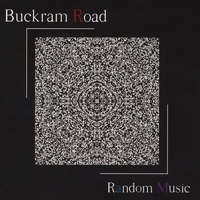"A far larger force is at work. It's a wasting disease that has shriveled New York politics so badly that the futures of 18 million citizens are held hostage by the likes of ___________, so badly that powers have become afraid of their own voters. They muscled all comers from challenging in a primary and, now, for the governor's temerity of intending to stand as a candidate, they have brought the power and prestige of the President of the United States to bear on , reducing all parties in the process."
I redacted some of the above to make it a more general statement and to illustrate my point.
Some have called for a Constitutional Convention in New York. It may be the only way to establish a new "level" playing field for the average New Yorker (however defined).
We have opined here on a number of occasions of the need for a uniform, open and dynamic system of information sharing and verifiable standards of analysis that is available to all New Yorkers.
It isn't so much that the elected officials are afraid of all voters, as much as they are afraid of certain well organized constituent groups and the media generally. This is because organized constituent groups and the media have resources that the general public does not have access to in a way that allows their voice(s) to be heard effectively.
Many feel as though they must join a group to be heard.
The problem is that many groups are one dimensional in nature and in fact, are in competition with similar groups for primacy in this "one dimension."
There currently is no mechanism for comparing and contrasting public policy in an objective, non-partisan (however defined) manner.
So, presuming there is the collective public will to create a new "order" in New York, one based upon accurate verifiable data and analysis and one that allows for the full participation of the individual as well as the organization, can such a feat even be accomplished?
The answer is yes.
Utilizing some of the ideas on this site, it is relatively easy to create a system of full public participation. As we have stated, we must have the full participation of every New Yorker because the collective "mind" is more likely to come up with positive outcomes than those of a limited number of our citizens. We really don't know where the next stroke of "genius" may come from if we don't allow for the possibility that it exists and has an opportunity to be heard and vetted.
So then the individual, who may be interested in one or multiple issues may have the same power and influence as an organization or the media and as importantly, has access to other informed opinions which may moderate his own and assist in consensus building and compromise, key ingredients to a civil society.
More in part two.
Subscribe to:
Post Comments (Atom)











































No comments:
Post a Comment